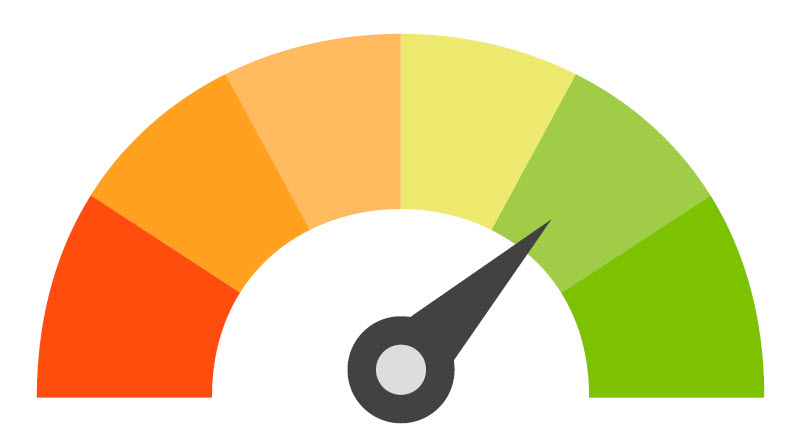A credit score is a number that tells a lender how risky of an investment you are. The higher your credit score, the lower the risk you represent to the lender. Two individuals with vastly different scores may both be offered a loan, however the person with the higher score will most likely get the better interest rate.
WHAT IS A GOOD CREDIT SCORE?
FICO, the company that created the most widely used credit score, has a score range of 300-850. FICO provides the following ranges as a guide:
Credit Score Ranges Rating
<580 Poor
580-669 Fair
670-739 Good
740-799 Very Good
800+ Exceptional
Lenders may have internal lending guidelines and set their own ranges for what they consider to be “poor,” “good,” or “excellent” credit scores and those may, differ from the FICO’s guide.
HOW IS A CREDIT SCORE CALCULATED?
There are five Key factors to calculating a credit score
Payment history: 35%
Amounts owed: 30%
Length of credit history: 15%
New credit: 10%
Types of credit used: 10%
Your score will fluctuate from month to month depending on payments and spending habits.
HOW TO CHECK YOUR CREDIT SCORE
You can get a free copy of your credit report from each of the credit bureaus once per year by submitting a request through AnnualCreditReport.com. Typically, you can only get a copy of each credit report for free one-time per. However, due to the COVID pandemic, the three credit bureaus are making free credit reports available weekly through AnnualCreditReport.com until April 20, 2022.
Be sure to check for accuracy on your report and be aware of any discrepancies. If any information is inaccurate, you can dispute it through the credit bureau’s website.
HOW TO IMPROVE YOUR CREDIT SCORE
If your credit score isn’t in the range you’d like, there are no shortcuts to improving the number immediately but here are some steps to take. Make payments to creditors on time and in full, take care of any delinquent payments, don’t use the full credit limit available to you and report different types of financial data such as payment history for expenses including rent and utilities.
If you have some negative items in your credit report, those items will most likely not be removed for at least seven years from the date the negative activity occurred. Making payments on time going forward will continue to improve your score, and lenders typically give greater weight to more recent history.
HOW CAN A FINANCIAL PLAN HELP IMPROVE MY CREDIT SCORE?
For consumers who are struggling with credit card debt and have a low credit score, a financial plan can help you rebuild credit and contribute to improving your credit score over time.
While there is no immediate way to get a higher credit score, WWC has found that a financial plan sets up a strategy for you to make consistent monthly payments to your creditors. Making consistent payments can improve delinquent status, and paying down credit cards will all make a positive impact on your credit report and your credit score over time.
For more information on financial plans contact us anytime at 423-610-0099!
This commentary was originally posted by Amy Lins on 11/23/2021
Source: https://www.moneymanagement.org/blog/understanding-your-credit-score
**Disclaimer: This material has been prepared for informational purposes only, and is not intended to provide, and should not be relied on for, tax, legal or accounting advice. You should consult your own tax, legal and accounting advisors before engaging in any transaction.


